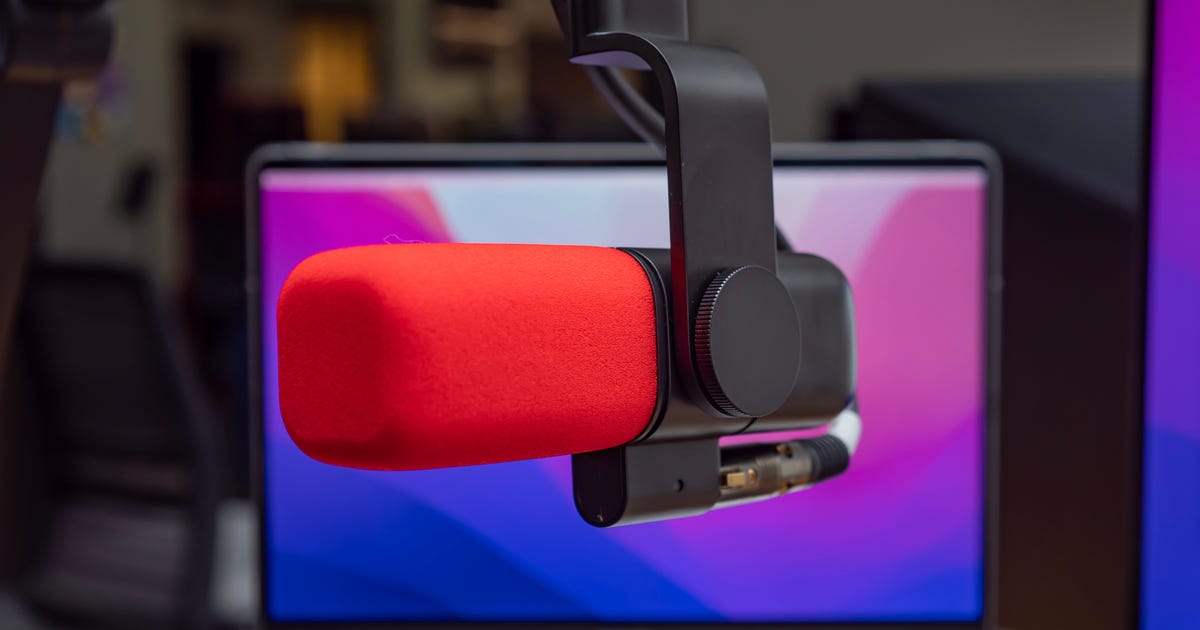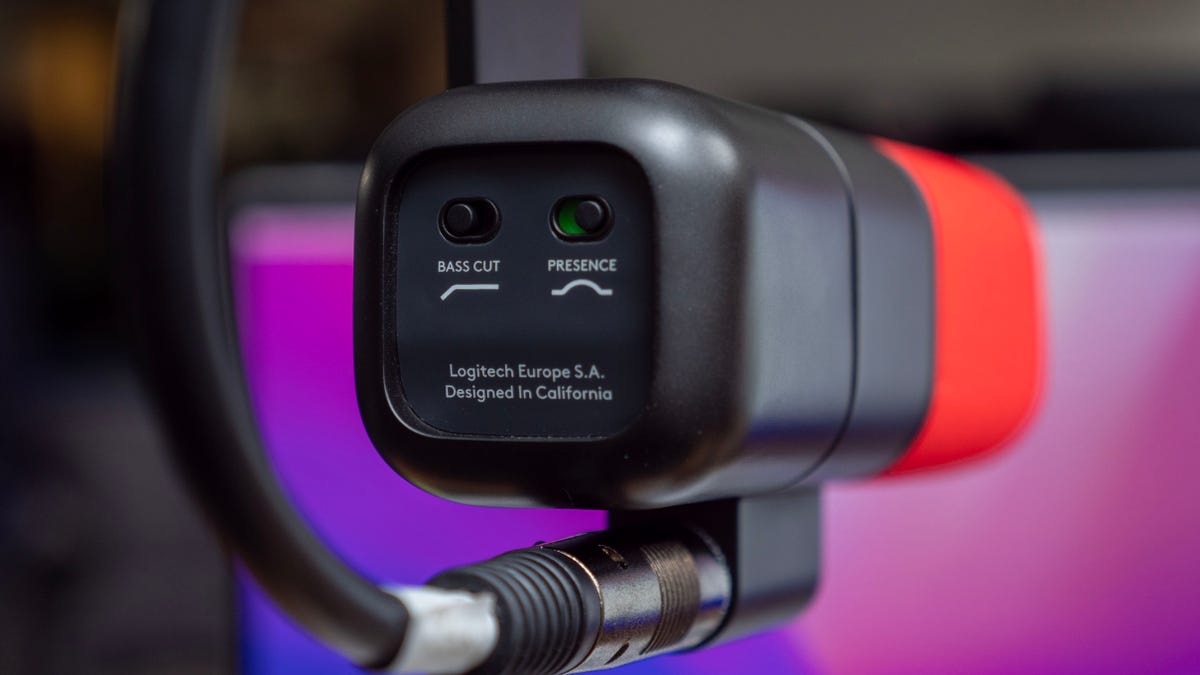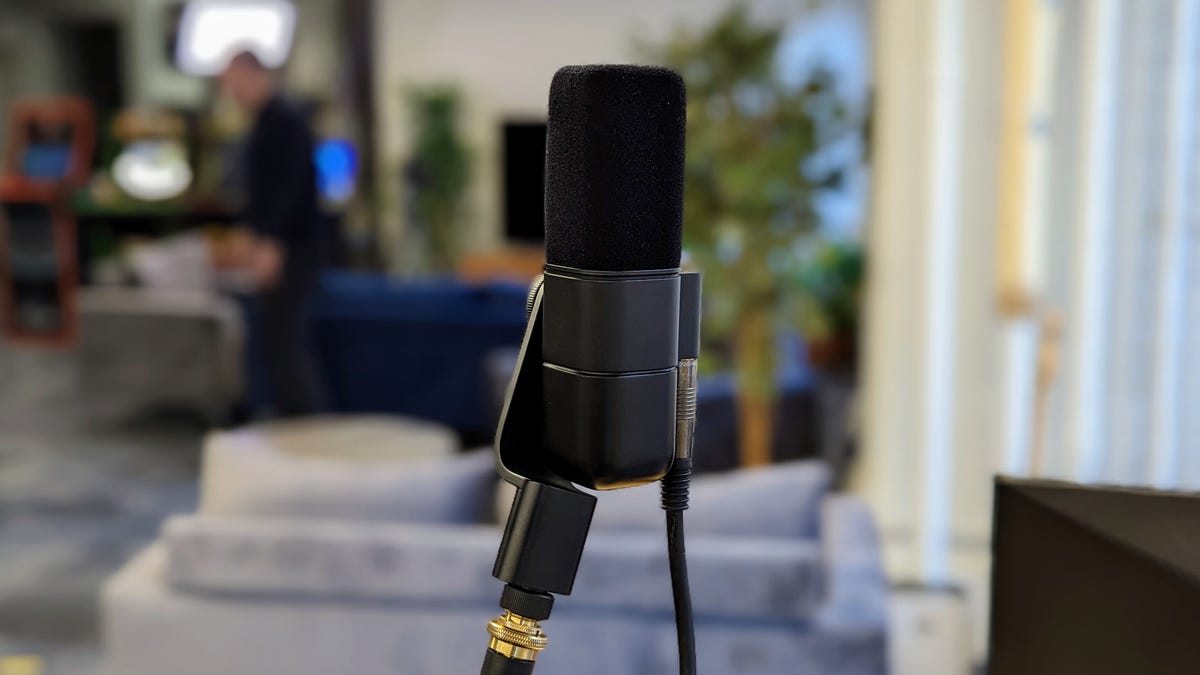Logitech Blue Sona Review: All the Mic You Need

Logitech’s goal with the Blue Sona dynamic XLR microphone is straightforward: Give people an accessible option for pro-level audio no matter what it’s plugged into. Whether you’re an experienced producer or just starting out, you’ll get amazing sound with minimal effort.
I fall into the “just starting out” user category, so I got testing help from former CNET podcast producer and audio engineer Bryan VanGelder to ensure the Sona lived up to Blue’s claims. Ultimately, we both arrived at the same conclusion: The Blue Sona makes it extremely easy to get clean, clear audio regardless of your experience level. It does come with a pro-gear price of $350 (£299, AU$530 converted), but you get a top-quality mic in return.
If you’re new to XLR microphones, they use an analog three-pin connector and are the standard for professional audio. Unlike a USB microphone, an XLR mic must be plugged into an audio interface with an XLR cable to convert the audio from analog to digital before connecting to a computer. You can get a USB mic that is as good as an XLR mic, but XLR is needed to connect to other pro audio gear, such as a mixer. It also lets you connect multiple mics simultaneously through a single audio interface into a computer.
To test the claim that you’ll get pro sound regardless of what audio interface it’s plugged into, we went with the cheapest option we could find on Amazon, the $30 Xtuga Q-12. If you’re investing $350, you’ll probably want an interface that’s even just a little better. But the Xtuga proved the Sona can get you great results with the most basic audio interface. The interface you go with does need to support 24- or 48-volt phantom power.
The mic capsule has two diaphragms, one to capture voice and another mounted in reverse to cancel vibration.
Josh Goldman/CNET
Best of both worlds
The Sona is a dynamic microphone that handles loud voices and noises better than a more sensitive condenser mic might. That means it’s good for game streaming or anything where you might have audio spikes, as it will help with distortion and clipping.
The mic also has a tight supercardioid pickup pattern that focuses on what’s in front of the mic while rejecting background noise. Combined with Blue’s ClearAmp technology that gives the mic an additional 25dB gain, the Sona has the greater sensitivity needed to boost quieter sources, functioning like a condenser mic. ClearAmp also means you don’t need to add a preamp gain like a Cloudlifter to your setup.

Tone controls are hidden under a magnetic cover on the back.
Josh Goldman/CNET
Again, the sound from the Blue Sona is clean with excellent clarity. Even the din of an open office and the HVAC blower over my desk was kept quiet. Bryan noted its robust low end and that it took a fair amount of effort to overload it. He put the Sona on par with the popular Shure SM7b. He also said the built-in high-pass filter and presence toggles on the rear of the mic make a noticeable difference in clarity too. They’re definitely worth experimenting with to get the tone you want from the mic.
Lastly, the Sona’s build quality is exceptional. The metal body gives it a professional look and feel. There’s an internal shock mount for the mic capsule. If you tend to get a bit animated when you talk or are concerned about bumps or vibration, the mount helps keep it all under control. Plus, the single-knob design allows it to rotate freely to use sitting on a desk or mounted on a boom.

Black and red foam windscreens are included.
Josh Goldman/CNET
In the box with the mic are two foam windscreens that magnetically click into place, making quick swaps simple. There’s also a 3/8-inch mic stand adapter. That’s all though, so if this is your first XLR mic, you’ll need an XLR cable and audio interface to connect to a computer.
Though it requires more investment than a USB mic, the Logitech Blue Sona’s straightforward design and features make it a superb choice if you’re ready to graduate to an XLR mic. And the built-in gain also means you need one less piece of equipment to buy and clutter up your workstation. Something to remember if you’re launching your podcasting career from a tiny desk in your apartment or if you’re a pro in need of a simple, space-saving option.
Source: CNET














